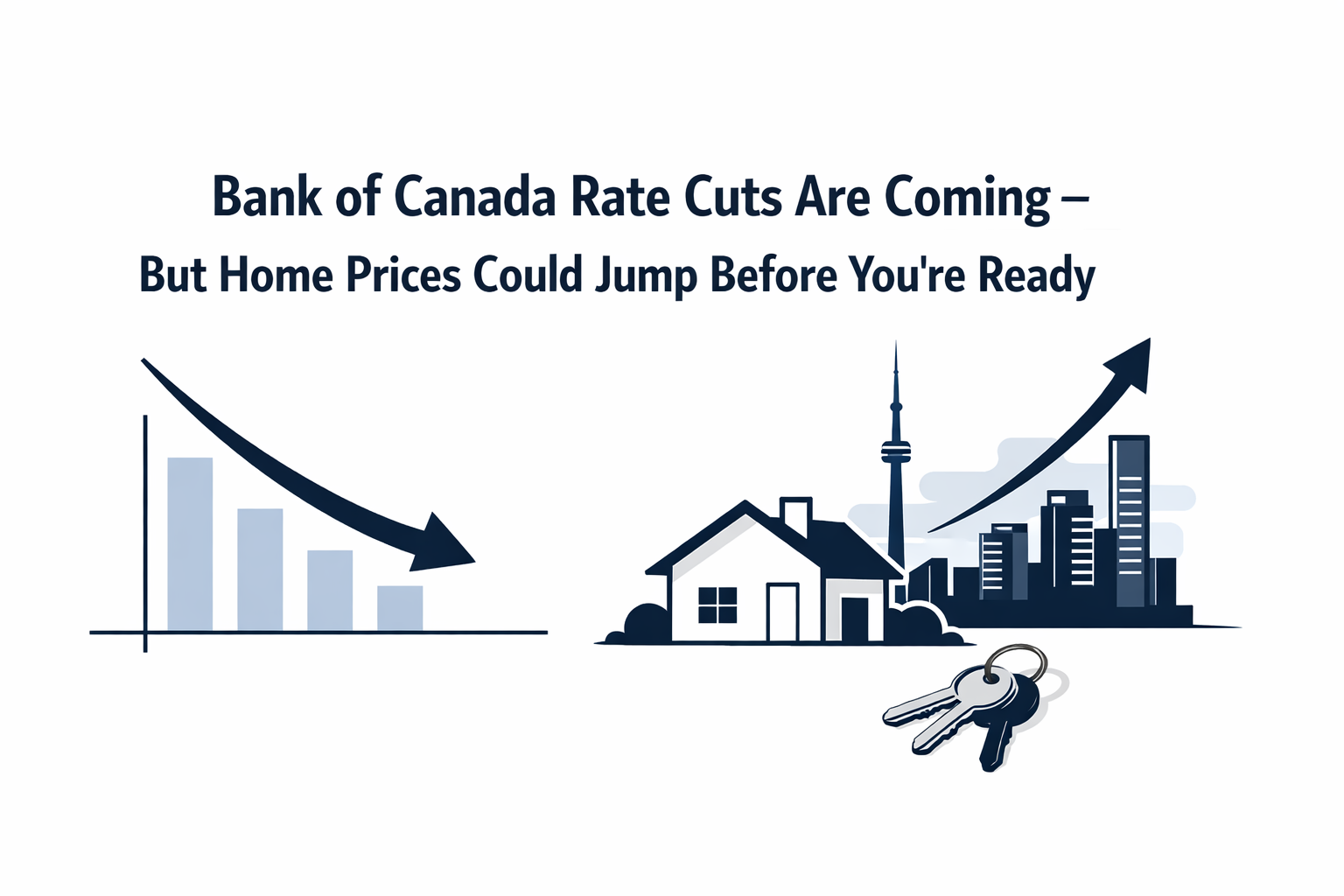Fixed vs. Variable Mortgages: Which Is Better in 2025?

Interest rates in Canada have been on a roller coaster over the last few years — from record lows during the pandemic to rapid hikes through 2022–2023. As we enter 2025, one of the biggest questions homebuyers face is:
Should I lock in with a fixed rate or gamble on a variable mortgage?
The decision matters. The difference between the two could mean tens of thousands of dollars in interest over the life of your mortgage.
In this article, we’ll cover:
- How fixed and variable mortgages work.
- What the 2025 economic and interest-rate outlook means for you.
- The pros and cons of each option.
- Real examples of how much you could save (or lose).
- Who should choose fixed vs. variable in today’s market.
1. Understanding the Basics: Fixed vs. Variable
Fixed-Rate Mortgage
With a fixed mortgage, your interest rate and monthly payment stay the same for the entire term (usually 3–5 years).
Key Features:
- Rate is locked in at signing.
- Payments stay predictable — great for budgeting.
- Immune to interest-rate hikes during the term.
Variable-Rate Mortgage
With a variable mortgage, your interest rate fluctuates based on your lender’s prime rate, which moves with the Bank of Canada’s policy rate.
Key Features:
- Rate may go up or down over time.
- Payments can stay the same (adjustable interest portion) or fluctuate depending on mortgage type.
- Potential to save money when rates drop.
2. Where Are Rates in 2025?
The Bank of Canada held its policy rate high through most of 2024 but started gradually cutting rates late in the year as inflation cooled closer to its 2% target.
- Prime rate: Now hovering around 6.20% (down from 6.95% peak in 2023).
- 5-year fixed rates: Ranging 4.59–4.99% for insured mortgages.
- 5-year variable rates: Now about 5.75–6.10% (prime – 0.45% discount common).
This creates a strange dynamic: fixed rates are often lower than variable rates at the moment, which historically is rare.
3. Economic Outlook: 2025–2026
Here’s what major economists and lenders are projecting:
- Interest rates expected to fall slowly. Analysts expect another 0.50–1.00% drop in the Bank of Canada rate over the next 12–18 months.
- Inflation is cooling. Forecasts suggest inflation remains under 3% for most of 2025.
- Housing market stabilizing. Pickering, Durham, and GTA markets are seeing more balanced conditions, but demand is still strong due to immigration and limited supply.
4. Pros and Cons of Fixed Mortgages
Advantages:
- Stability: You always know your payment amount.
- Protection: No stress about rate hikes.
- Budget-friendly: Perfect for first-time buyers or families with strict cash flow.
Disadvantages:
- Higher penalty to break: Fixed mortgages have expensive interest-rate differential (IRD) penalties if you refinance early.
- No benefit if rates drop: You stay locked in at a higher rate even if prime falls.
5. Pros and Cons of Variable Mortgages
Advantages:
- Historically cheaper: Over 25+ years of data, variable rates have usually outperformed fixed.
- Lower penalty: Only 3 months’ interest to break.
- Benefit if rates fall: Your interest cost drops automatically.
Disadvantages:
- Payment risk: If prime goes up, so does your payment (or more of your payment goes to interest).
- Stress test is higher: You must qualify at a higher rate, which can reduce buying power.
- Mental stress: Watching rates fluctuate can cause anxiety for some borrowers.
6. Side-by-Side Example: $700,000 Home in Pickering
Let’s say you buy a $700,000 home with 10% down. Mortgage amount: $630,000.
OptionRateMonthly Payment (25 yrs)Total Interest in 5 yrs5-Year Fixed4.79%$3,606≈ $139,0005-Year Variable5.75%$3,950≈ $162,000 (if prime stays flat)
Insight:
Today, fixed actually saves you about $21,000 in interest over five years vs. variable (if rates don’t drop much).
But if prime rate falls by 1.00% over the next 18 months, variable interest cost drops closer to $145,000 — almost equal to fixed.
7. Who Should Choose Fixed in 2025
You may want a fixed mortgage if:
- You are a first-time buyer and need predictable payments.
- You have tight monthly cash flow or dependents to budget for.
- You believe rates might go back up in 2026 or later.
- You plan to stay in your home for the entire term.
8. Who Should Choose Variable in 2025
You may want a variable mortgage if:
- You have flexibility in your budget and can handle payment swings.
- You plan to refinance or sell before your term ends (lower penalty helps).
- You believe rates will drop faster than expected and want to benefit.
- You want more freedom to switch lenders or break your mortgage without major cost.
9. Hybrid or “Split” Mortgages
Some lenders offer a blend of fixed and variable — for example, half of your mortgage at fixed and half at variable.
This can be a smart compromise if you want:
- Some payment stability.
- Some exposure to potential rate drops.
10. The Psychological Factor
Numbers aside, there’s an emotional side to this decision.
- Fixed gives peace of mind — you can focus on life, not interest rate announcements.
- Variable can make you feel like you’re “playing the market.” For some, this is exciting. For others, stressful.
Choosing the mortgage that helps you sleep at night is just as important as saving a few thousand dollars.
11. Expert Tip: Don’t Just Look at the Rate
Your mortgage broker can help you compare:
- Prepayment privileges.
- Portability options.
- Penalty calculations.
- Lender reputation for customer service.
Sometimes a slightly higher rate with better flexibility saves you more in the long run.
Conclusion: Which Is Better in 2025?
For early 2025, fixed rates are generally more attractive because they’re lower than variable rates — a rare situation. Many experts recommend taking a shorter-term fixed (2–3 years) to ride out this high-rate environment and then renew when rates are likely lower.
However, variable mortgages could become appealing again if the Bank of Canada cuts rates faster than expected.
Bottom line: There’s no one-size-fits-all answer. Your personal finances, future plans, and risk tolerance matter more than the headlines.
Call to Action
If you’re buying in Pickering or Durham Region this year, let’s talk about your mortgage strategy. I can run side-by-side comparisons and show you exactly how much each option would cost based on your purchase price and down payment.



